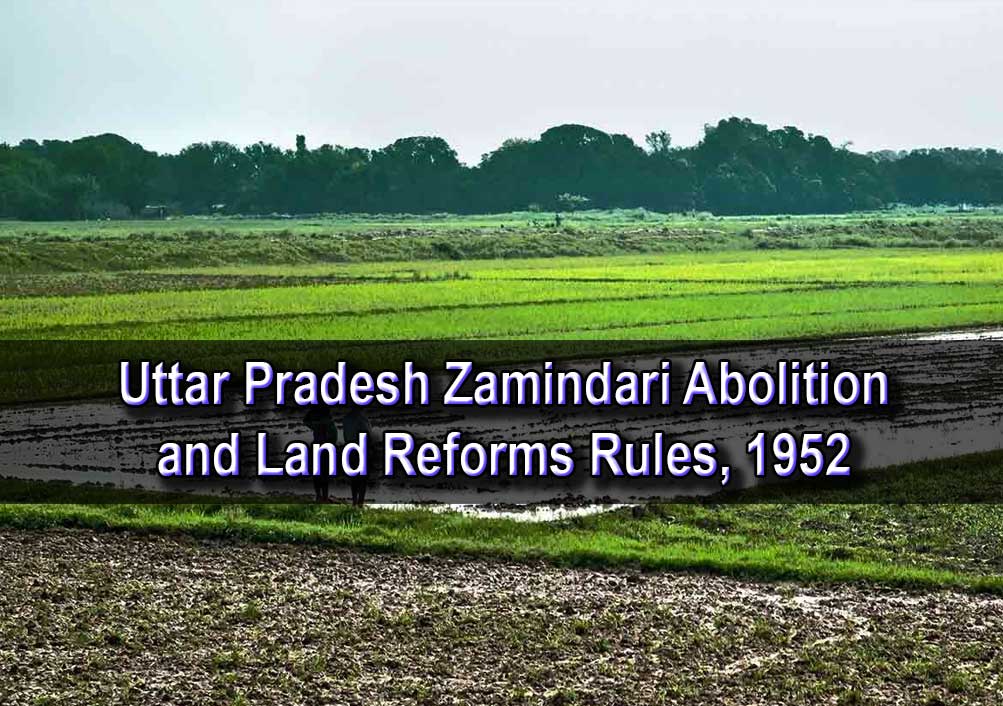In C.A.Nos.2627-2628 of 2012-SC- Rule 176(4) of UPZALR Rules indicates that decision has to be taken by competent authority on recommendations of Land Management Committee within one week of its receipt but its non-compliance would not invalidate proceedings: SC
Justices Ajay Rastogi & Bela M. Trivedi [14-02-2023]

Read Order: KAMAL AND OTHERS Vs. GAJRAJ AND OTHERS
Mansimran Kaur
New Delhi, February 16, 2023: In a case pertaining to the Uttar Pradesh Zamindari Abolition and Land Reforms Rules, 1952 (UPZALR Rules) the Supreme Court has allowed the appeals by observing that the High Court committed a serious error in interpreting Rule 176(4) in the right perspective, and at the same time, setting aside the proceedings and remitting the matter back to the authority without any reason or justification.
The Division bench of Justice Ajay Rastogi and Bela M. Trivedi noted, “ Rule 176(4) of the Uttar Pradesh Zamindari Abolition and Land Reforms Rules, 1952 indicates that the decision has to be taken by the competent authority on the recommendations of the Land Management Committee within a week of its receipt but its non-compliance would not invalidate the proceedings and it does not contain any consequential effect if the authority fails to exercise its power within time-frame of one week as stipulated under Rule 176(4).”
The instant appeals were directed against the judgment and the order dismissing the review petition dated October 12, 2011.
The brief facts of the case which manifest from the record were such that the present appellants are the applicants to whom land was allotted after going through the procedure prescribed under the Uttar Pradesh Zamindari Abolition and Land Reforms Act, 1950 on the recommendations made by the Land Management Committee of Village Phaleda in its meeting. The allotment was finally confirmed by the Sub-Divisional Magistrate, Khurja which came to be affirmed on the dismissal of a revision petition filed at the instance of one of the complainants, who although had no locus standi and was not an allottee by the Additional Commissioner, Meerut Division, Meerut in exercise of power under Section 333 of the Act by order dated March 31, 2008.
Order of the Additional Commissioner, came to be set aside by the High Court on a writ petition filed by a stranger to the proceedings, Gajraj, who was the original complainant, questioning the allotment made to the appellants on the premise that under Rule 176(4) of the Uttar Pradesh Zamindari Abolition and Land Reforms Rules, 1952, the decision was to be taken by the competent authority on the recommendations made by the Land Management Committee within one week of its receipt from the Chairman and eight months had been consumed by the authority for granting final approval which was in violation of Rule 176(4) of the Rules.
Accordingly, the High Court remitted the matter back to the authority to examine the same afresh in accordance with law by Order dated August 12, 2010 which was the subject matter in appeals.
The Bench opined that the reference which had been made by the Assistant Collector under sub-rule (4) to grant appropriate approval within a week of its receipt appears to be introduced with an object to decide the matter in a time bound manner so that those persons who are landless or in whose favour the recommendations have been made after going through the process under provisions of the Act or the Rules framed thereunder, may not be deprived of the legitimate right which has been conferred upon them and the duty has been casted upon the authority to decide as expeditiously as possible, within one week stipulated thereunder, but if there is a delay either for Ministerial or administrative reasons, at least it cannot be attributed to the allottee applicants.
“At the same time, if the authority has failed to exercise its power within the stipulated time of one week as referred to under Rule 176(4) of the Rules, at least it is inconsequential and will not invalidate the proceedings”, the Bench added.
The Bench noticed that the recommendations made by the Land Management Committee after the approval being granted by the Assistant Collector had been examined by different authorities in exercise of power under Section 198(4) of the Act and later under its revisional jurisdiction under Section 333 of the Act. Even before the Top Court, the respondents were unable to show that there was any error or illegality being committed in the decision-making process while the allotments were made in favour of the appellants allottees on the recommendations made by the Land Management Committee.
In absence thereof, the Bench held that if the authority competent has failed to exercise its power vested under Rule 176(4) within the time prescribed which is not within the ambit and control of the allottee applicants, at least they couldnot be saddled with heavy costs for the inaction of the authorities in exercise of the power vested in it. In the absence of any provision to invalidate such proceedings, it was inconsequential and there was no reason/justification to set aside those allotments made.
In view of the same, the Court noted that the High Court had not examined the matter in this perspective.
At the same time, if the action has not been taken by the authority within one week as referred to under Rule 176(4), there is no consequential effect of its non-compliance. More so, no error has been pointed out in the decision-making process adopted by the authorities under the provisions of the Act or the Rules framed thereunder, the Bench added while allowing the appeal.
Sign up for our weekly newsletter to stay up to date on our product, events featured blog, special offer and all of the exciting things that take place here at Legitquest.




Add a Comment